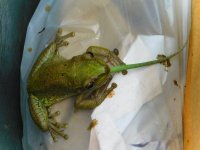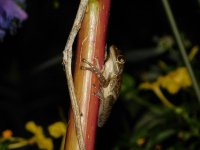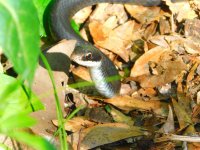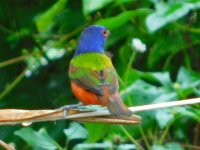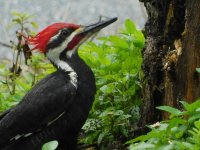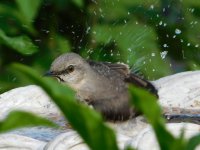There are a number of organic approaches (green manure, no dig etc) that focus on feeding the soil life rather than fertilizing the plants. One of the key 'selling points' seems to be that your soil improves each year using these methods.
As an example, one of Charles Dowding's experiments has been running for many years is where he compares a no dig bed with a bed where all else is the same but the compost is dug into the bed. His results always show that the no-dig bed produces better results than the dig bed. But what we're not seeing is improved harvests over the years. Likewise with his experiment where he has grown the same crops (potatoes, broad beans) in the same bed for 8 years in a row with no reduction in quality or size of harvest. But what he doesn't mention is no improvement either.
I've used no-dig for 4 years now. I got outstanding results in year one. I don't measure things in detail but I haven't observed any improvement in subsequent years (although the soil LOOKS better). But as my results were good in year one why would it matter?
How long does it take to get beds using no-dig, green manure or other similar approaches to reach optimum levels? (I get that it depends how bad things are before you start).
How would we establish what optimum levels are? For example, some focus on NKP levels, or the specific needs of a given crop. But others (Dowding for example) argue that it's the soil life - primarily the bacteria - that matters. Get that right and all plants will thrive. Well, if my soil was producing great results in year one (within 3 months actualy) presumably soil life/bacteria builds up to sufficient levels very quickly?
Has anyone used one of these 'feed the soil' techniques and actually recorded harvest sizes, quality or some other measurable variable over the years? At what point did YOU reach peak soil fertility? And how do you personally assess soil fertitlity? I don't think soil testing is a good guide as it makes assumptions about what's important in a soil and it seems not all experts agree on this. Tests might show your soil getting better, but are your crops improving in quality or harvest size?
If your soil has been trashed by aggricultural practices you might have a lot of remedial work to do. But in your average garden does it take more than a couple of weeks or months to establish sufficient soil life to grow great veg? Dowding's approach requires 1 inch of compost a year. Nothing more. That's enough to sustain 2, 3, 4 harvests in a year. Even with hungry crops there's nothing more added. This works even when you plant directly into a brand new bed.
As an example, one of Charles Dowding's experiments has been running for many years is where he compares a no dig bed with a bed where all else is the same but the compost is dug into the bed. His results always show that the no-dig bed produces better results than the dig bed. But what we're not seeing is improved harvests over the years. Likewise with his experiment where he has grown the same crops (potatoes, broad beans) in the same bed for 8 years in a row with no reduction in quality or size of harvest. But what he doesn't mention is no improvement either.
I've used no-dig for 4 years now. I got outstanding results in year one. I don't measure things in detail but I haven't observed any improvement in subsequent years (although the soil LOOKS better). But as my results were good in year one why would it matter?
How long does it take to get beds using no-dig, green manure or other similar approaches to reach optimum levels? (I get that it depends how bad things are before you start).
How would we establish what optimum levels are? For example, some focus on NKP levels, or the specific needs of a given crop. But others (Dowding for example) argue that it's the soil life - primarily the bacteria - that matters. Get that right and all plants will thrive. Well, if my soil was producing great results in year one (within 3 months actualy) presumably soil life/bacteria builds up to sufficient levels very quickly?
Has anyone used one of these 'feed the soil' techniques and actually recorded harvest sizes, quality or some other measurable variable over the years? At what point did YOU reach peak soil fertility? And how do you personally assess soil fertitlity? I don't think soil testing is a good guide as it makes assumptions about what's important in a soil and it seems not all experts agree on this. Tests might show your soil getting better, but are your crops improving in quality or harvest size?
If your soil has been trashed by aggricultural practices you might have a lot of remedial work to do. But in your average garden does it take more than a couple of weeks or months to establish sufficient soil life to grow great veg? Dowding's approach requires 1 inch of compost a year. Nothing more. That's enough to sustain 2, 3, 4 harvests in a year. Even with hungry crops there's nothing more added. This works even when you plant directly into a brand new bed.




